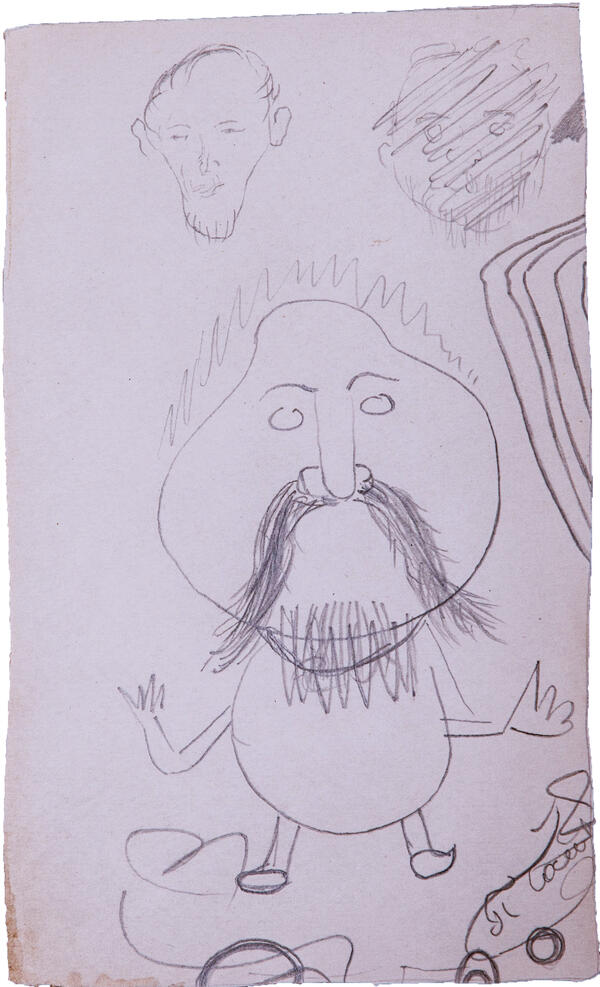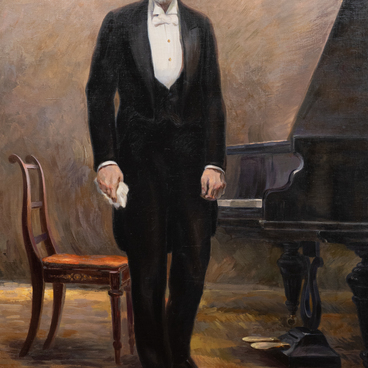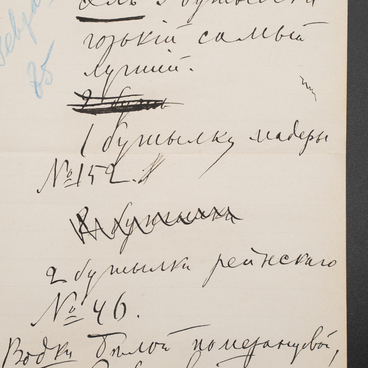Several drawings by Pyotr Ilyich Tchaikovsky have been preserved. He usually made his sketches in letters. The exhibition presents an early drawing of his — a friendly caricature on one of his fellow students at the St. Petersburg Conservatory, Alexander Ivanovich Rubets, who became a prominent folklorist, musicologist and music teacher.
Alexander Rubets was born in the city of Chuhuiv, Kharkiv Governorate. His mother Anna Petrovna, nee Nemirovich-Danchenko (one of the reformers of the Russian theater, Vladimir Ivanovich Nemirovich-Danchenko, also came from this family), was a highly educated person. She, like her husband, Colonel Ivan Filippovich Rubets, loved classical and folk music. Bandurists and lyricists were frequent guests in their house. Their songs left an indelible mark on their little son.
Many artists, while on tour, often performed in the Chuhuiv military settlement, over which Ivan Filippovich Rubets was in charge, and little Alexander did not miss a single performance. He was not yet 15 years old when his parents invited the Czech musician Franz Czerny from Vienna. They hoped that Czerny would help their son develop his musical abilities.
In 1861, Alexander Rubets graduated from the Lyceum with the right to the rank of the 14th class and joined the Chernihiv Criminal Chamber as an assistant to a judicial investigator. But in 1862 he applied for admission to the St. Petersburg Conservatory. After successfully passing the exams, he was accepted. He worked there for 29 years and taught about 10,000 students. Alexander Rubets helped all those musically gifted.
This was especially evident after 1895, when he became blind, was dismissed and moved to Starodub. He spent his entire pension on maintaining the music and drawing schools he had established in Starodub. He also funded sewing courses and construction of a rural school in Buda-Koretskaya and a cinema in Starodub.
Alexander Rubets collected about 6,000 Ukrainian, Russian, Belarusian folk songs.


